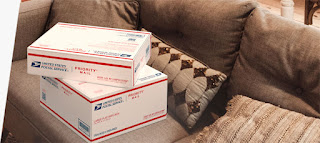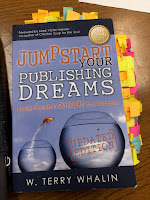Where do you get educated about how to create a great book title? Or how do you learn what makes a bestselling book cover? From my experience in publishing, people seem to learn this information through trial and error or years of experience.
At least ten or twelve years ago, I wrote a series of back covers for a small publisher. As a freelance writer, the publisher sent the manuscript, the book title and information about the author. Often on a tight production schedule, I skimmed the manuscript, crafted a headline, then some bullet-points of benefits for the book and sent it back to the publisher along with my invoice for the copywriting. I probably wrote twenty or thirty of these back covers. Besides my payment, I received a copy of the finished book. Often I pulled my submitted copy and compared it to the printed book to see what I could learn from the comparison. With few changes, my words appeared on the finished book. I worked in isolation with almost zero feedback from my connection at the publishing house. No one kicked back my words and asked me to rewrite them. From what I know now about the internal process of publishing houses, I suspect the overloaded production person simply took my words, tweaked a few things and pushed it ahead in the process.
Most recently at a publisher, the editor who did the developmental editing for the book also did the copywriting for the back cover material. Yes, the marketing department had input into the final version but the initial draft of the copy came from the editorial department. There are many different ways this part of the process is handled within the publishing community. From my experience it is learn-on-the-job, thrown-off-into-the-deep-end-and-start-swimming sort of effort with little education and instruction. Yet each day customers make critical purchasing decisions about the books from these efforts.
Within traditional publishing situations, the publisher titles the book and designs the cover along with the words on the back of the cover. Many authors feel powerless and out of control of this particular part of the book production process--yet they don't have to be. I've told authors for many years if they propose an excellent book title and subtitle then that title will remain throughout the publishing process. It is the same way with your back cover copy. As the author, you can propose language and if it is excellent, it will be used in the creation of the book.
Back to my original question about training in this area, where do you get it?

I'd like to suggest an unusual yet in some ways expected suggestion. Turn to experts in design and creating book titles to get the right one for your book. I've recently listened to Cover That Book which in several hours of education gives incredible value and ideas for any author. Whether you plan to self-publish or go to a traditional publisher. Why pour this type of energy into the title of your book? Because when you send a proposal to an editor or literary agent, you have seconds--and I mean that--to grab their attention and the first thing they will see if your title and subtitle.
I can hear the authors protesting this information about the cover design. Yes, within a traditional publishing arena, the cover design is the responsibility of the publisher. But I suspect even a major publishing house would carefully look at cover designs from an author they want to publish.
Finally I want to suggest that editors and literary agents in the publishing community will also benefit from Cover That Book. It's an area of the marketplace where most of us have learned through trial and error. There is huge value (and earnings potential) if you get the right training. Susan Kendrick writes a valuable blog called Book Cover Coaching. Whether you get their valuable package or not, I recommend you subscribe to this blog and follow her writing. It's another means to get educated about covers and titles.
Labels: book cover, book design, Book Marketing, Cover That Book, education, Susan Kendrick



.png)


























